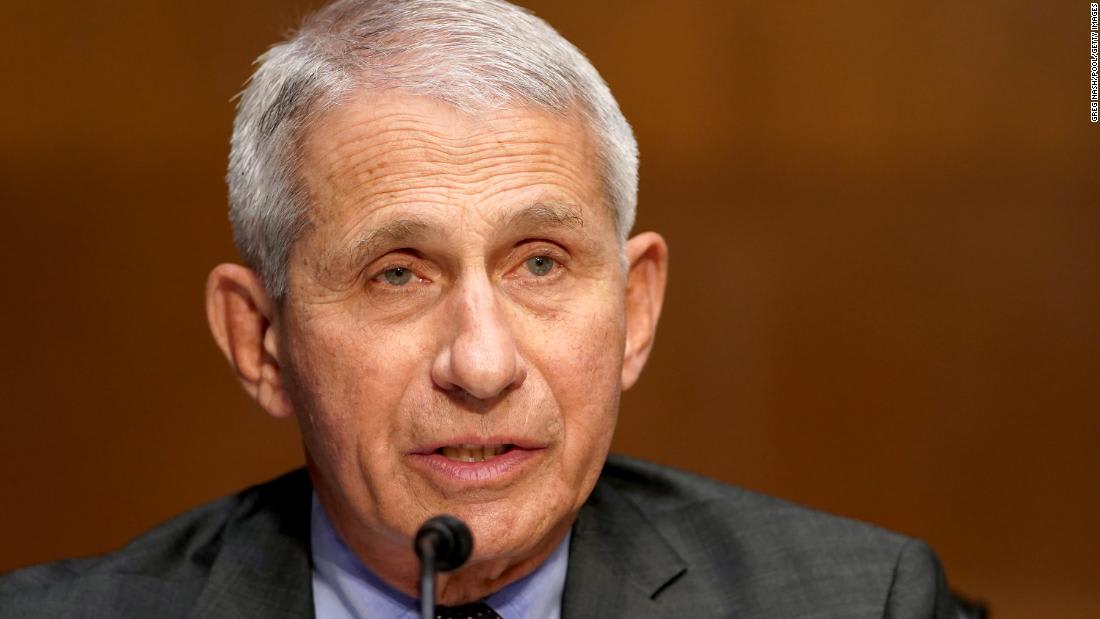Taiwan reports 295 new Covid-19 cases as island battles its worst outbreak
From CNN’s Eric Cheung in Taipei, Taiwan
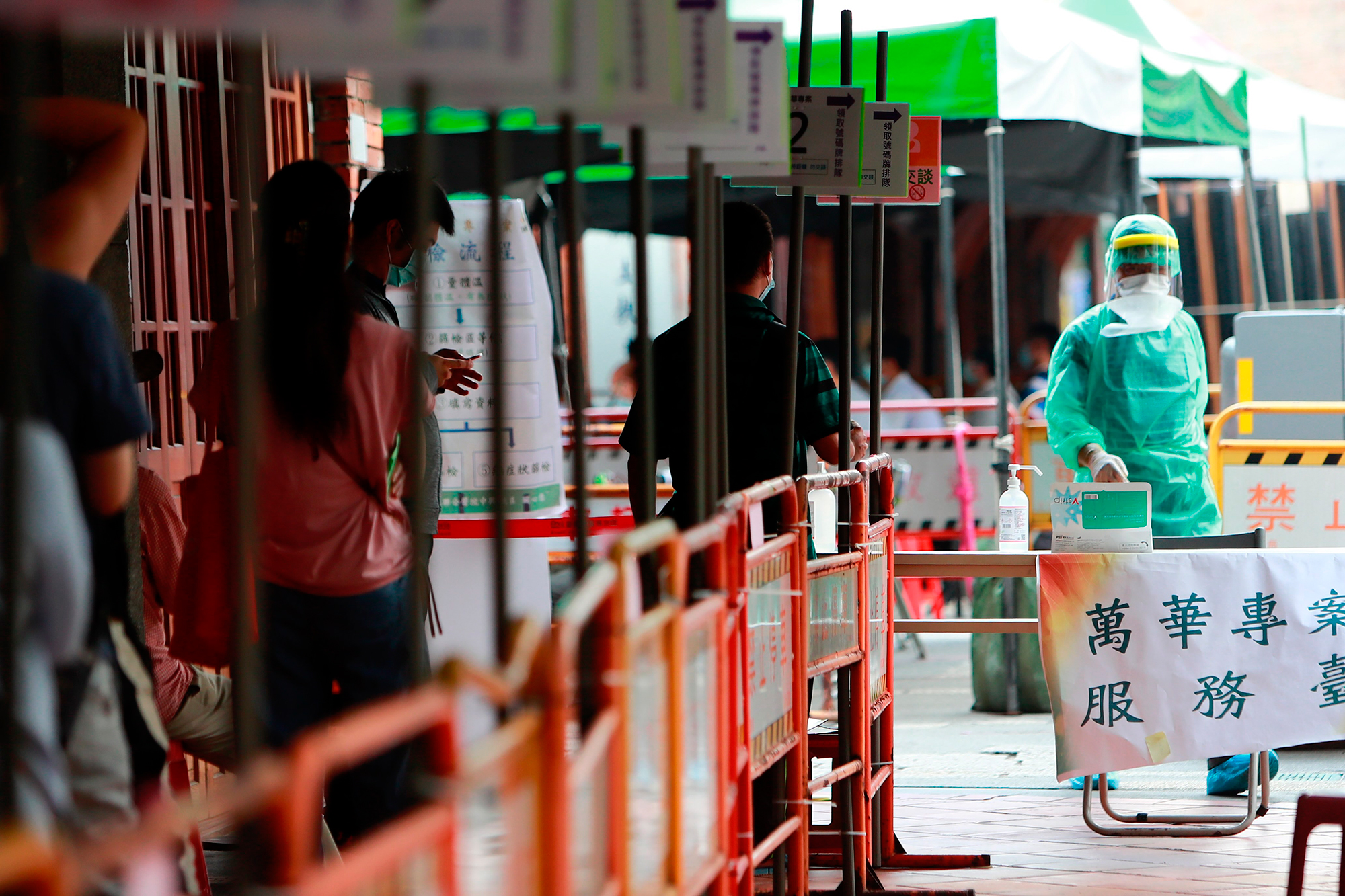
Taiwan reported 295 new Covid-19 infections Thursday, the Central Epidemic Command Center (CECC) said in a news conference.
Among the cases, 286 were locally transmitted, said Taiwan’s Health Minister Chen Shih-chung. A total of 87 of those cases were reported in the capital, Taipei, while 157 were reported in the surrounding New Taipei City.
As of Thursday, Taiwan has reported 2,825 total Covid-19 cases, including 1,669 locally transmitted infections, the CECC said.
Earlier on Thursday, the CECC said in another news conference that anyone who spreads disinformation about the Covid-19 epidemic in Taiwan could face up to three years in prison and a fine equivalent to $107,000.
Taiwan had been among the safest spots on the planet when it came to coronavirus, with life on the island proceeding much as usual, until a sudden outbreak this month more than doubled the number of cases reported since the pandemic began.
India grapples with “black fungus” drug shortage as cases rise among Covid-19 patients
From CNN’s Esha Mitra in New Delhi
Several Indian states are facing shortages of a drug used to treat black fungus, a rare and potentially fatal infection that is increasingly being detected in Covid-19 patients, health authorities in the country have warned.
The infection, known by doctors as mucormycosis, had been seen in India before the pandemic, but cases are mounting rapidly in coronavirus patients and those who have recently recovered. It is caused by mold found in wet environments and can attack the respiratory tract, particularly of those with compromised immune systems.
At least 90 people have died of black fungus in the western state of Maharashtra, which includes the bustling financial center Mumbai and has been hit hard by the pandemic, said the state’s health minister Rajesh Tope on Wednesday. At least 800 people are currently hospitalized with the infection.
Some 2,000 cases have so far been recorded, according to local health officials.
“We are now getting 100 cases daily on average,” Dr. Tatyarao Lahane, a senior state health official, told CNN on Wednesday.
The state of Rajasthan, which has also reported cases of black fungus, has declared it an epidemic and a “notifiable disease.” Two other states, Haryana and Telangana, have also declared it a notifiable disease, to be reported to the central Indian government.
Some 115 cases were found in Haryana and at least 150 in Telangana, according to state officials.
Black fungus cases have also been found in New Delhi, according to Padma Srivastava, head of the department of neurology at the All India Institute Of Medical Sciences in the capital.
“Every single day in emergency it is average 20 and above (cases reported),” Srivastava told local media on Wednesday, adding that a separate ward had been created for black fungus patients at the hospital.
Read the full story:
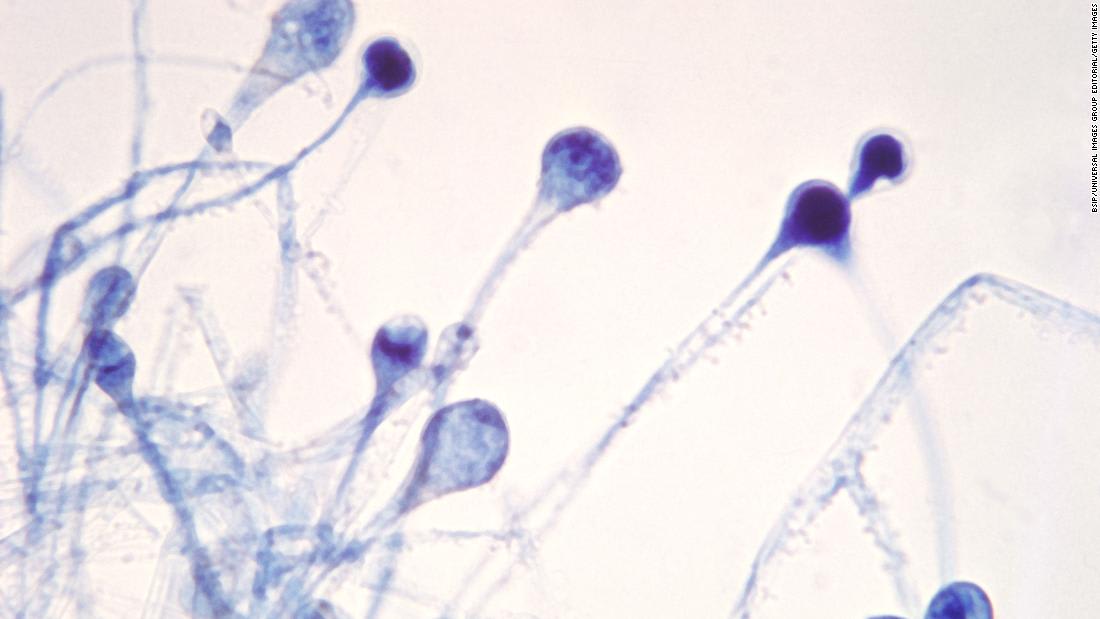
Destruction of Gaza’s Covid-19 lab poses high risk of virus spreading, say Palestinian health officials
From CNN’s Richard Greene in Jerusalem and Hande Atay Alam in Izmir, Turkey
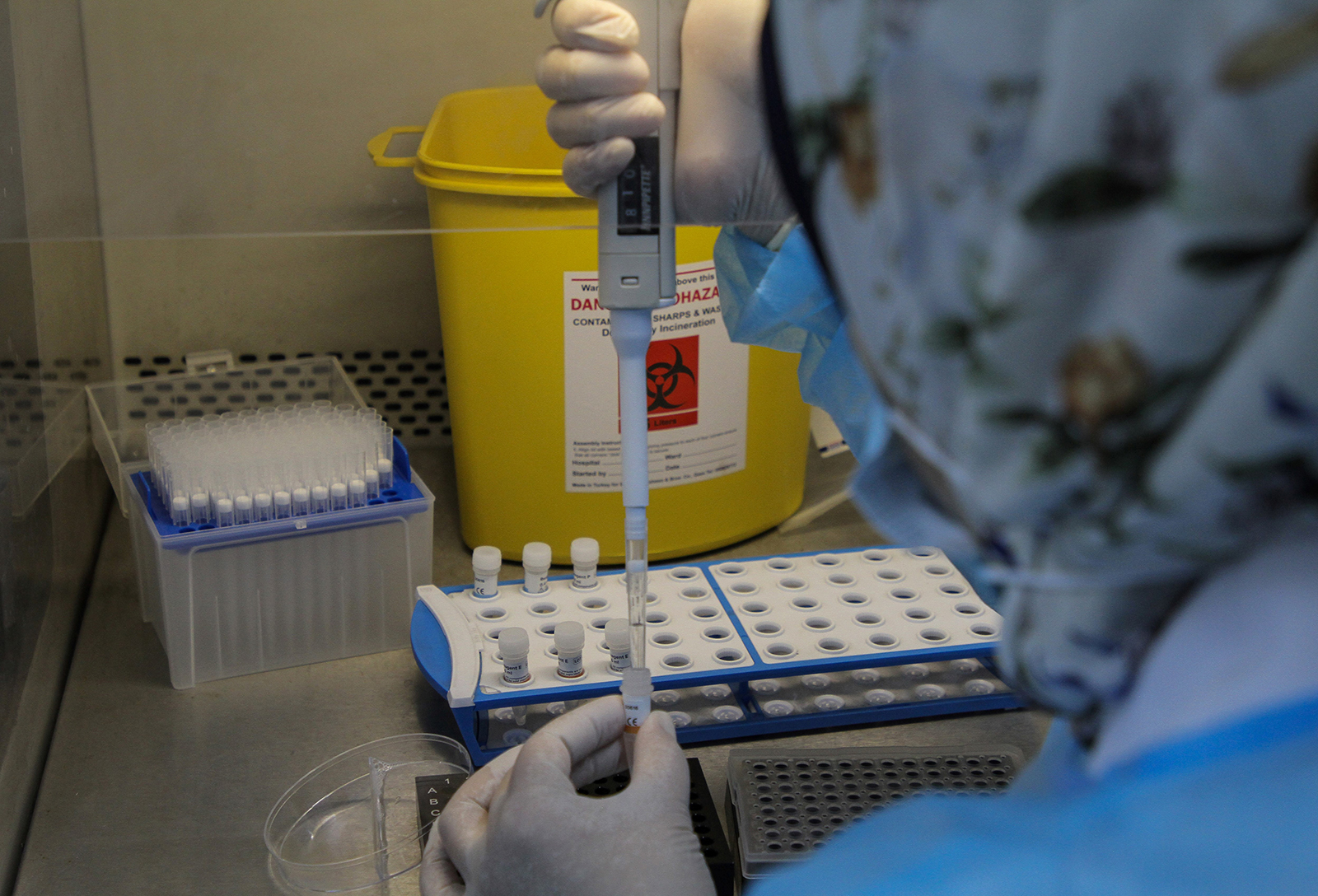
Gaza’s main Covid-19 laboratory, the Rimal clinic, is unable to carry out coronavirus testing after being destroyed by Israeli airstrikes, the Hamas-run Palestinian Ministry of Health said, warning the situation “certainly poses a high risk of the spread of the virus.”
The ministry issued the warning in a statement about the effect of Israeli airstrikes on medical facilities in Gaza.
“A number of health facilities (21), including the MOH administrative complex and Rimal clinic, have been targeted or affected by the airstrikes. Thus, COVID-19 laboratory testing services, that are solely provided at the MOH Central Laboratory in Rimal clinic, have been completely ceased, which certainly poses high risks of widespread of the virus,” the ministry said Wednesday.
The Rimal clinic was damaged by Israeli airstrikes on Monday, Hamas authorities said. Video from the scene showed windows blown out in the building. At the time, Hamas referred to the clinic as one of Gaza’s main coronavirus testing centers.
A spokesperson for the Israel Defense Forces told CNN on Tuesday that it targeted the main operations center of the Hamas internal security forces in the Rimal neighborhood, and that the target building was close to the clinic.
The Ministry of Health statement called UN agencies and humanitarian organizations “to protect health teams and establishments, as well as to advance pressure on the Israeli side to allow entry of critically needed medical supplies into the Gaza Strip ASAP.”
Israel – which controls two entry points into Gaza – briefly opened the crossings on Tuesday, but said it closed them in response to mortar fire from the territory towards Israel.
On Wednesday, mortars were again fired from Gaza as a shipment of aid from Jordan, including medical supplies, was passing through the Kerem Shalom crossing, prompting Israel again to close the crossing, Israeli authorities said. The shipment did not get through.
1.5 million people in Nepal unable to get second Covid-19 vaccine dose as India curbs exports
From journalists Asha Thapa, Nishant Khanal and Kosh Koirala in Kathmandu, Nepal
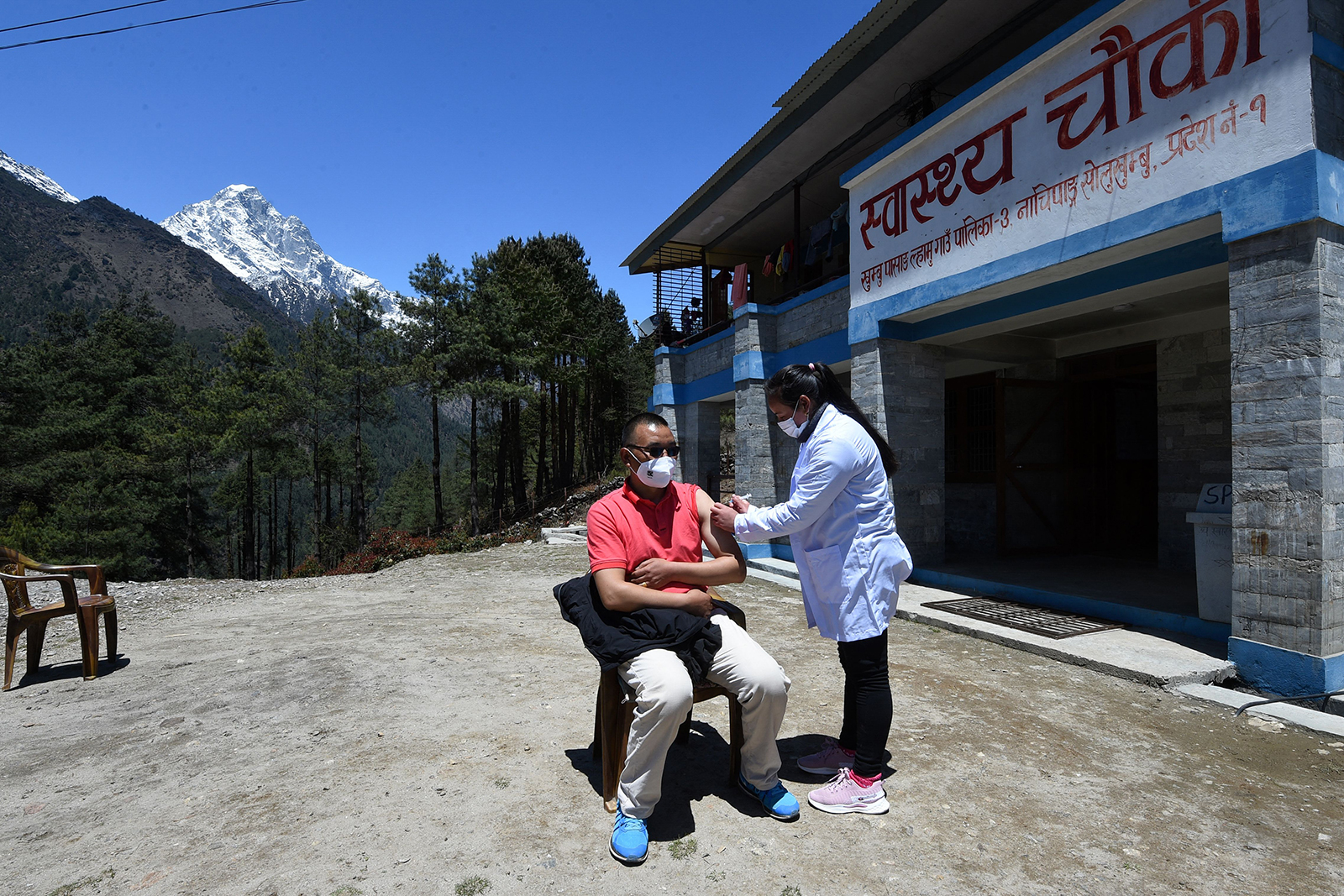
A total of 1.5 million people in Nepal are not able to get their second dose of a Covid-19 vaccine, as the country’s stocks run out and supply prospects have become clouded by India’s curb on vaccine exports.
Dr. Samir Adhikari, deputy spokesperson for Nepal’s Ministry of Health and Population, said that among them, 1.3 million are elderly.
Nepal started its vaccination drive in January with 1 million doses of the AstraZeneca shot provided by India, which were administered to frontline health care workers.
The country later procured 2 million more doses of the AstraZeneca shots from the Serum Institute of India (SII), but so far only 1 million were received, which were administered to people above age 65 as first doses.
The SII had yet to deliver the remaining 1 million shots that Nepal was expecting to receive by the end of April and administer as second doses to the elderly in May, the spokesperson of the Ministry of Health and Population, Dr. Jageshwor Gautam said.
The SII said in a statement on Tuesday that it hoped to start delivering to COVAX and other countries by the end of this year.
“We are in communication with Indian side through diplomatic channel to get vaccines at the earliest possible date,” Gautam said adding there is no date yet for when the supply of vaccines will be resumed.
Gautam added Nepal has around 50,000 to 60,000 doses of Covishield – the Indian manufactured AstraZeneca vaccine – in storage for emergency purpose.
India records more than 276,000 new Covid-19 cases
From CNN’s Swati Gupta in New Delhi
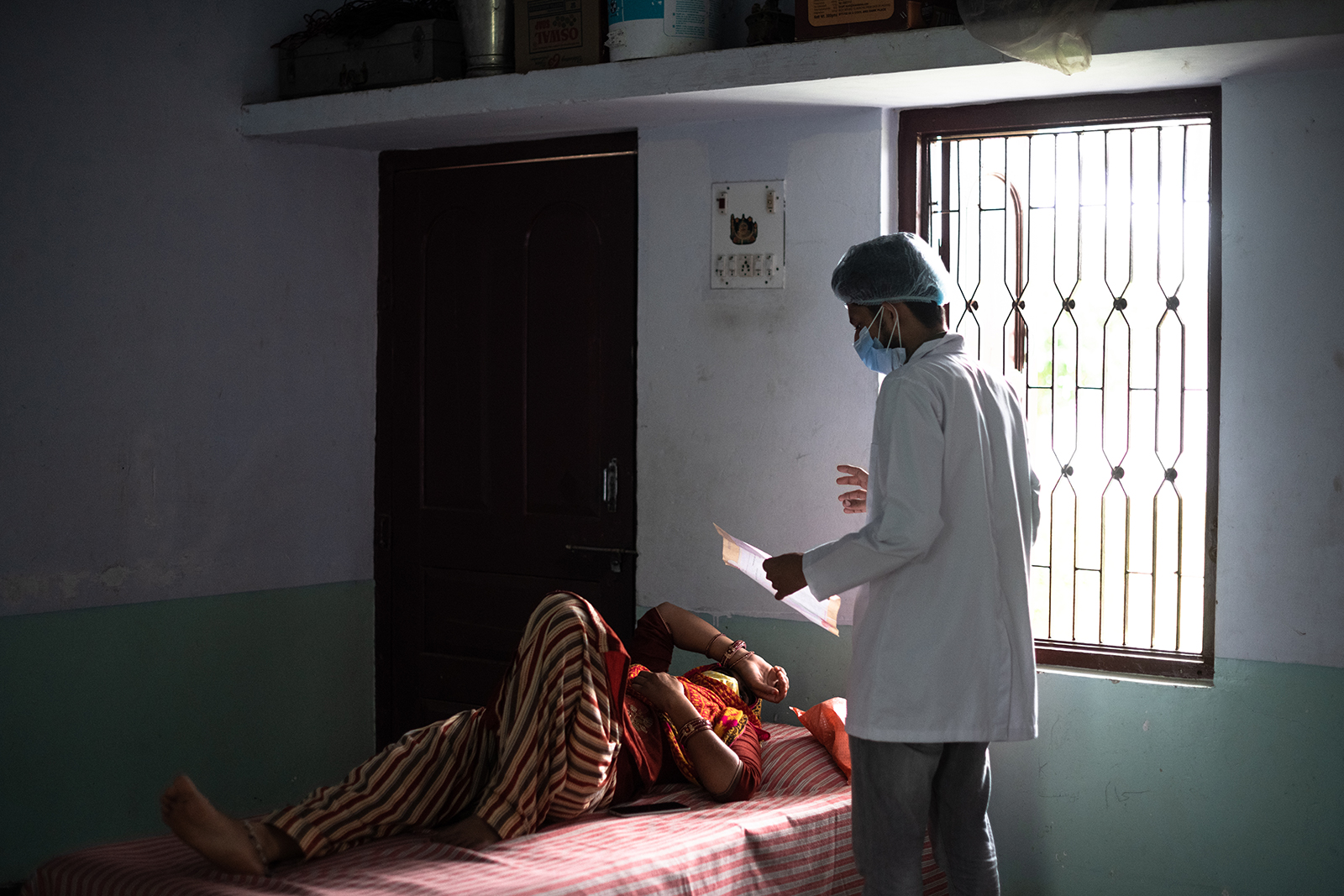
India reported 276,110 new cases of Covid-19 Thursday, according to figures released by the health ministry.
The total number of cases now stands at 25,772,440.
The country also reported 3,874 virus-related fatalities, with the total death toll now at 287,122. On May 19, India set a new record for the number of Covid-related deaths with more than 4,500 reported in 24 hours. The number of deaths reported each day in the country have been consistently above 3,000 since April 28.
A total of 186.9 million vaccine doses have been administered since India began its vaccination program on January 16. On Wednesday, the country distributed 1,145,569 vaccine doses.
Malaysia records highest daily increase in Covid-19 cases
From CNN’s Sophie Jeong
Malaysia recorded its highest daily increase of Covid-19 infections with 6,075 new cases Wednesday, the state-run Bernama news agency reported.
The country’s previous record was 5,728 new Covid-19 cases on January 30. Only three cases reported Wednesday were imported, Bernama reported, citing Dr. Noor Hisham Abdullah, director-general of the country’s health ministry.
The state of Selangor reported the highest number of Covid-19 cases with 2,251, followed by 699 new cases in the state of Johor and 660 in Kuala Lumpur.
The number of new clusters detected also hit a new record high on Wednesday with 22 clusters, according to Bernama. Eight of them involved workplaces while seven are in the community. Six are religious clusters, and one is linked to an educational institution.
Malaysia has reported a total of 485,496 confirmed cases of Covid-19 and 2,040 deaths, according to a tally by Johns Hopkins University.
Covid-19 linked to nearly 1 million excess deaths in 29 high-income countries last year, study finds
From CNN Health’s Ryan Prior
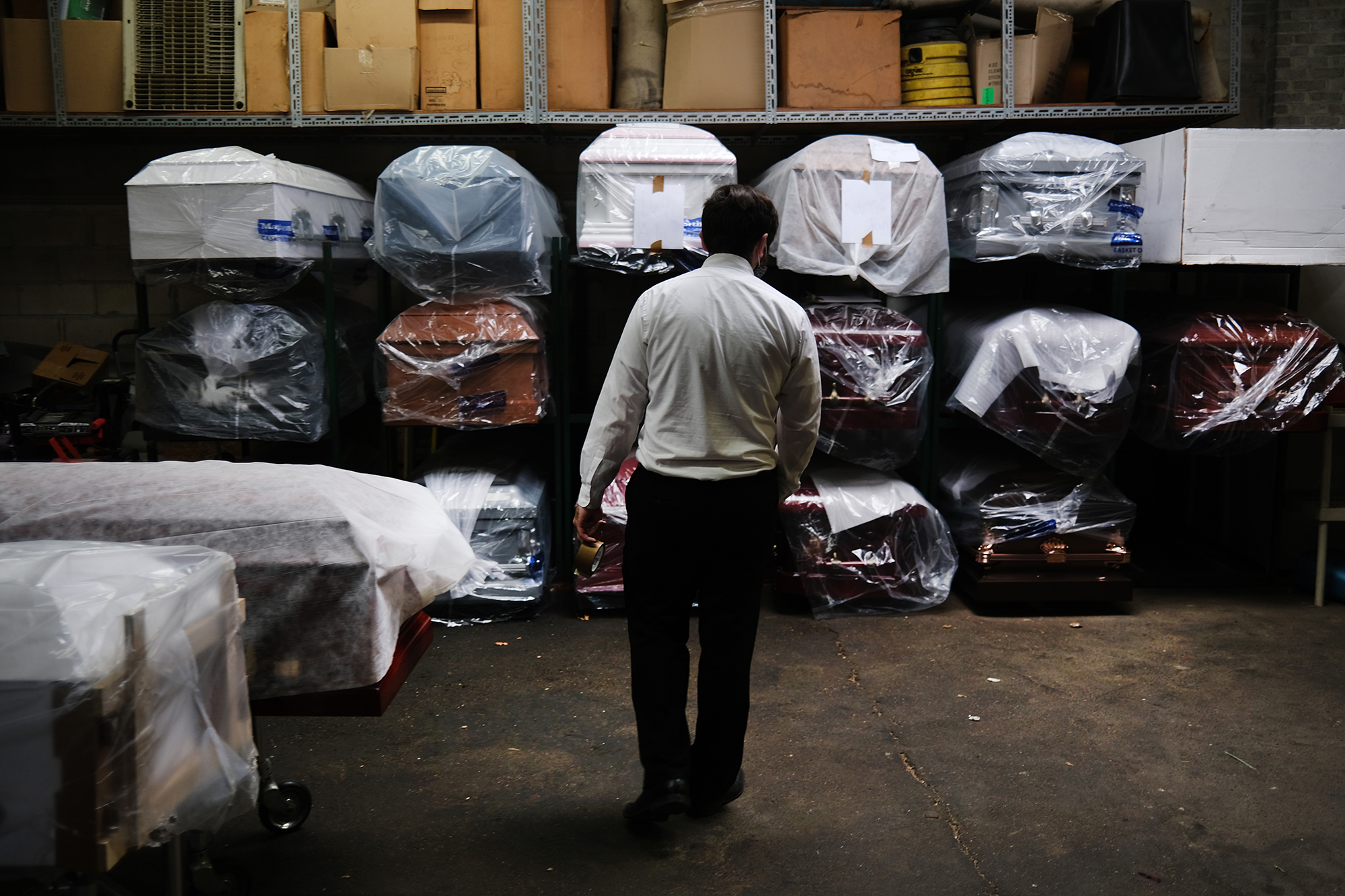
The pandemic likely contributed to an additional 979,000 deaths in 2020 across 29 high-income countries, according to a study led by an international team of scientists and published Wednesday in the British Medical Journal.
Researchers looked at data from 29 countries included in the Human Mortality Database, which collects data from national agencies and is run by scientists at the University of California Berkeley and the Max Planck Institute for Demographic Research in Germany.
These countries, which included the United States, Germany, and South Korea are all members of the Organization for Economic Cooperation and Development (OECD). They compared the number of recorded deaths in 2020 to the number that would normally be expected based on data from the previous few years.
About 458,000 of the excess deaths, or nearly half, occurred in the US. The official Covid-19 death toll in the US in 2020 was 339,014.
The United Kingdom and Italy were also in the top three, with 94,000 and 89,000 excess deaths respectively.
“In most countries, the estimated number of excess deaths exceeded the number of reported deaths from Covid-19,” the team, led by Dr. Nazrul Islam of the Nuffield Department of Population Health at the University of Oxford, wrote.
“For example, in both the US and the UK (that is, England, Wales, Northern Ireland, and Scotland combined), the estimated excess deaths were more than 30% higher than the number of reported Covid-19 deaths, and they were more than 50% higher in some other countries, including Spain, Poland, Hungary, Greece, Lithuania, Slovakia, Estonia, and South Korea.”
“However, New Zealand, Norway, Denmark, Israel, France, Germany, Belgium, and Switzerland had a higher number of reported Covid-19 deaths than estimated excess deaths.” The team is not sure why.
Excess deaths were primarily concentrated in those aged 75 and older, followed by the 65-74 age group, the researchers found.
The findings suggest that “many countries had an underestimation or underreporting of Covid-19 deaths, a substantial increase in non-Covid-19 deaths, or both,” the team wrote.
Sao Paulo relaxes Covid-19 restrictions despite rising new cases and hospitalizations
From CNN’s Rodrigo Pedroso in Sao Paulo
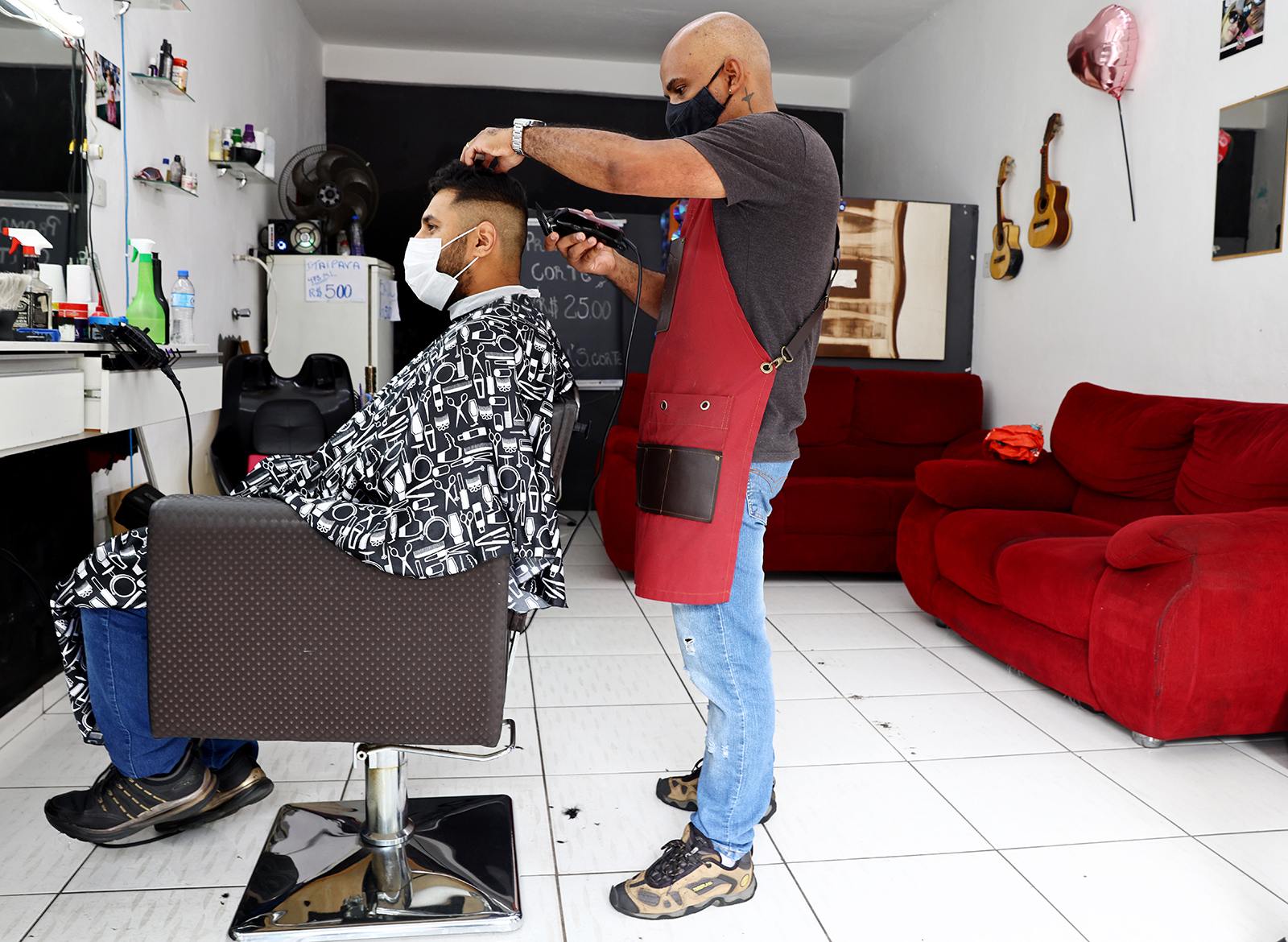
The government of Sao Paulo announced Wednesday it will start easing Covid-19 restrictions from June 1 despite rising new cases and hospitalization rates.
Authorities in the southeastern Brazilian state said opening hours for commercial establishments will now be extended until 10 p.m. The recommended maximum capacity for all commercial spaces, including bars, restaurants, and gyms, will also be increased from 40% to 60%.
The announcement comes after the number of Covid-19 patients admitted to intensive care units in Sao Paulo rose again this week, reaching the mark of 10,000 patients in ICU beds in the state health system. The ICU bed occupancy across the state is at 80%.
After eight consecutive days in which around 9,000 patients were hospitalized, the state health secretary on Tuesday registered an increase of hospitalization to 10,159 patients in Sao Paulo’s hospitals. The current hospitalization number is much higher than the peak of the first wave of the epidemic in July last year, which put 6,250 people in ICU units in the state.
The daily average of new Covid-19 cases in Sao Paulo increased 8.1% in the first three days of this week, compared to the same period last week. The number of daily deaths also increased by 9.8%.
According to the state health secretary, Sao Paulo has reported 3,129,412 total cases and 105,852 deaths from coronavirus.
Covid-19 booster shot will likely be needed within a year of vaccination, Fauci says
From CNN’s Virginia Langmaid and Amir Vera
While the world may be opening up because of the increase in Covid-19 vaccinations, top medical experts say there may be another round of shots needed within about a year.
A booster Covid-19 vaccine for people who have already been vaccinated may be needed as soon as eight to 12 months after their second shot, according to Pfizer CEO Albert Bourla and Dr. Anthony Fauci, director of the National Institute of Allergy and Infectious Diseases.
“We know that the vaccine durability of the efficacy lasts at least six months, and likely considerably more, but I think we will almost certainly require a booster sometime within a year or so after getting the primary,” Fauci said.
Roughly 47.9% of the US population has received at least one Covid-19 vaccine dose, according to Centers for Disease Control and Prevention data as of early Wednesday. About 37.8% of the population is fully vaccinated.
As of Wednesday, there were more than 33 million cases of Covid-19 in the United States and more than 587,000 deaths.
Fauci also said Wednesday that variant-specific boosters may not be needed.
“Instead of having to play whack-a-mole with each individual variant and develop a booster that’s variant-specific, it is likely that you could just keep boosting against the wild type, and wind up getting a good enough response that you wouldn’t have to worry about the variants,” he said.
The wild type is the non-mutated strain of the virus.
Pfizer has not yet finished its trials on a booster vaccine, Bourla said.
“I believe in one, two months we will have enough data to speak about it with much higher scientific certainty,” he said.
Read the full story:
